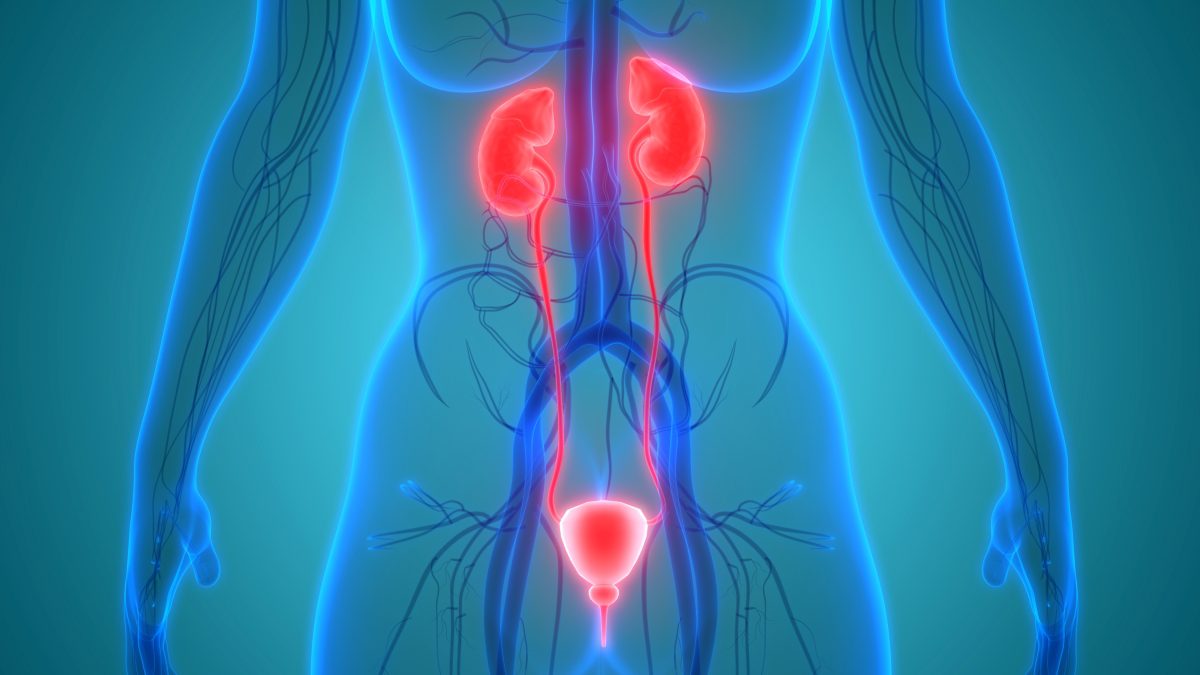What is stress urinary incontinence?
Stress incontinence is the involuntary loss of urine due to pressure on your bladder. Certain activities and movements such as lifting heavy objects, running, sneezing or coughing elevate the stress (or pressure) on your bladder. As a result of increased pressure, you leak urine. Women are at higher risk of stress incontinence than men. Though, stress incontinence has nothing to do with psychological stress.
Stress incontinence is distinct from overactive bladder and urgency incontinence. In the case of overactive bladder and urgency incontinence, your bladder muscles contract, leading to an urgent need to urinate that you cannot get to the washroom in time. However, the main cause of stress incontinence is pressure on your bladder.
Stress incontinence and how it affects your life
Stress urinary incontinence may impact your daily life. For example, it can make you feel embarrassed, limit your social life and your work. Additionally, you may choose not to engage in leisure activities or physical activities. Fortunately, with the proper treatment, you can manage stress incontinence and improve the quality of your life.
Symptoms of stress incontinence
If you have a stress urinary incontinence, you may experience leaking of the urine when coughing or sneezing, laughing, exercising, lifting heavy objects, bending over, having sex.
Urine loss may not always occur when you do any of the listed activities. However, any movements and activities that elevate pressure on your bladder increase your risk of involuntary loss of urine, especially when you have a full bladder.
Causes of stress incontinence
When your pelvic floor muscles and urinary sphincter become weak, stress urinary incontinence may occur. Pelvic floor muscles are muscles that support the urethra, and a urinary sphincter is a group of muscles responsible for controlling the release of urine.
When the bladder is filled with urine, it expands. Under normal conditions, as the bladder fills with urine, the valve-like muscle in the urethra stays closed to prevent the leakage of urine. The urethra is a small short tube that carries urine from the bladder out of your body. However, suppose the muscles in the urethra become weaken. In that case, any movements that put pressure on your pelvic or abdominal muscles (such as coughing, sneezing, lifting heavy objects, etc.) may lead to increased pressure on the bladder. Elevated bladder pressure may cause urine leakage.
The weakening of your urinary sphincter and pelvic floor muscles may be caused by:
- Prostate surgery. One of the main factors contributing to stress urinary incontinence in men is treating prostate cancer (prostatectomy) that involves surgically removing the prostate gland. The surgery may weaken the sphincter that encircles the urethra. The sphincter lies right below the prostate gland.
- Childbirth. During the natural delivery of a child, a woman’s pelvic floor muscles or the sphincter may lose their strength due to damage of nerves or tissue. In addition, the stress incontinence from such damages may develop as right after delivery as after years.
Factors that contribute to the development of stress incontinence
Factors that increase the risk of stress incontinence worsening include:
- Overweight and obesity
- Many years of high-impact activities, such as jumping and running
- Illnesses that lead to chronic coughing
- Smoking that may cause a frequent coughing
Risk factors
- Pelvic surgery. Muscles that support the urethra and bladder may lose their strength as a result of surgical treatment of prostate cancer in men and surgical removal of the uterus (hysterectomy) in women. Weakened muscles increase the pressure on the bladder and may lead to stress incontinence.
- Age. Even though stress urinary incontinence can occur at any age, older people are more susceptible to it. It is due to the weakening of muscles that occurs with aging.
- Type of childbirth delivery. There is a higher risk of developing stress urinary incontinence in women who have had a vaginal delivery or who have had a forceps delivery (it is a more rapid delivery of a healthy baby). Women who underwent cesarean section are at lower risk of stress incontinence development. Also, women who have had a vacuum-assisted delivery have a lower risk of experiencing stress incontinence.
- Body weight. Excess weight increases the risk of stress urinary incontinence development by elevating the pressure on pelvic organs.
Complications of stress incontinence
- Mixed urinary incontinence. Mixed incontinence is an experiencing of stress incontinence and urgency incontinence together. In turn, urgency incontinence is an involuntary loss of urine due to bladder muscle contraction that causes an intense urge to urinate.
- Skin irritation. If you have advanced urinary incontinence and you don’t take precautions (for example, incontinence pads), you may experience skin irritation from continuous contact of skin with urine.
- Emotional distress. Stress incontinence can make you feel embarrassed. Moreover, it may limit your social life, activities, work and other aspects of life. Some people with stress incontinence are ashamed of the fact that they need incontinence garments or pads.
Click Here to read about Treatment.
















Leave a Reply
You must be logged in to post a comment.